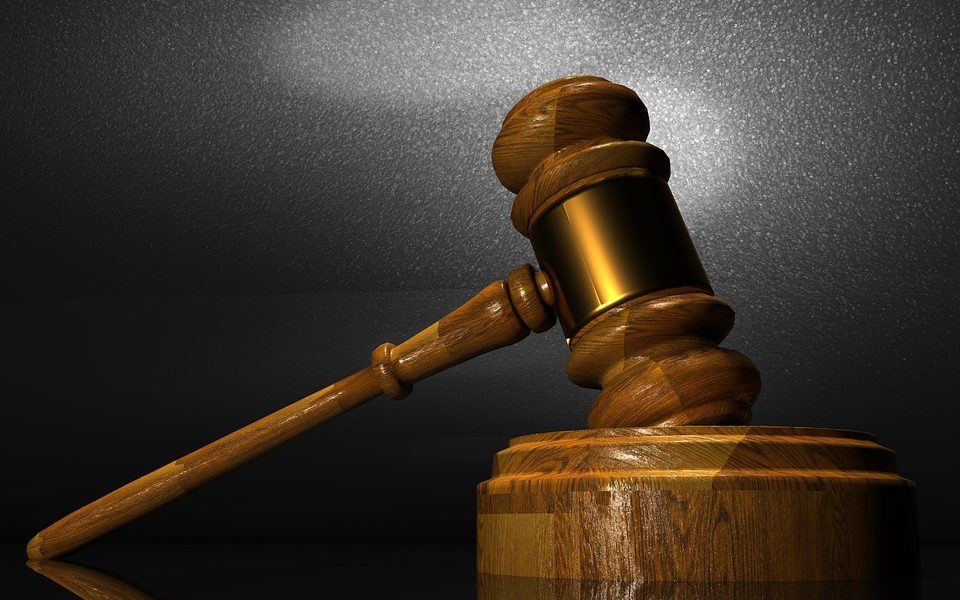A federal judge in Winston-Salem has granted class-action certification to a group of plaintiffs suing the NC Division of Motor Vehicles to stop the practice of revoking drivers licenses when people fail to pay traffic fines, but declined to grant a preliminary injunction.
The ACLU of North Carolina, which is representing the
plaintiffs alongside the Southern Poverty Law Center and the Southern Coalition
for Social Justice, expressed disappointment about the order issued by US
District Court Judge Thomas Schroeder.
“We’re really disappointed by this ruling,” said Molly
Rivera, a spokesperson for the ACLU of North Carolina. “We are still reviewing
Judge Schroeder’s decision. We’ll be reviewing it in the coming days to
determine the best next steps for our clients.”
North Carolina law includes a provision allowing defendants
to restore their driver’s license if they demonstrate to the court that their
failure to pay fines “was not willful” and that they are “making a good faith
effort to pay.” The plaintiffs have pointed out that neither the courts nor the
DMV notifies defendants that they have a right to ask for a so-called
“ability-to-pay” hearing before the agency revokes their licenses.
Judge Schroeder, who was appointed to the federal bench by
President George W. Bush, wrote in his order released on Sunday: “While the
court certainly do[es] not disparage the importance of a driver’s license to
plaintiffs, and indeed recognizes the hardships attendant to the loss of a
driver’s license, these considerations do not serve to overcome binding
precedent that the private interest in driver’s licenses is insufficient to
mandate a pre-revocation evidentiary hearing.”
Schroeder narrowed the grounds on which the plaintiffs can
pursue the case, ruling that the “plaintiffs have not plausibly alleged an
equal protection and substantive due process claim” because, he said, the state
law revoking licenses for failure to pay traffic fines “has a rational basis.”
He also found that “the fundamental fairness doctrine,” which holds that under
the Fifth and Fourteenth amendments to the Constitution the government shall
not take a person’s life, liberty or property without due process of law, does
not apply in this case.
Schroeder noted that DMV Commissioner Torre Jessup has not
challenged the plaintiffs’ procedural due process claims that defendants
deserve an “opportunity to be heard” before their licenses are revoked, and he
allowed the lawsuit to go forward on those grounds, although in declining to
grant a preliminary injunction he found that they are unlikely to ultimately
succeed in making their case. Schroeder wrote that the plaintiffs “have not persuasively
argued that the hearing already provided for” under state law “fails to substantially
alleviate the risk of erroneous deprivations.”
Rivera said that, in contrast to Judge Schroeder, federal
judges in other jurisdictions have granted injunctions to temporarily stop DMVs
from revoking licenses for failure to pay traffic costs while the cases are
wending through the court system.
While allowing the case to go forward, Schroeder also agreed
to certify two classes — individuals whose driver’s licenses have already been
revoked by the DMV for failure to pay, and those whose licenses will be revoked
in the future.
“Even looking only at the commissioner’s evidence, then,
plaintiffs’ proposed revoked class includes at least 62,788 individuals,”
Schroeder wrote. “As to the proposed future revocation class, the court may
reasonably infer from the size of the revoked class that it too is large.”
Join the First Amendment Society, a membership that goes directly to funding TCB‘s newsroom.
We believe that reporting can save the world.
The TCB First Amendment Society recognizes the vital role of a free, unfettered press with a bundling of local experiences designed to build community, and unique engagements with our newsroom that will help you understand, and shape, local journalism’s critical role in uplifting the people in our cities.
All revenue goes directly into the newsroom as reporters’ salaries and freelance commissions.


Leave a Reply